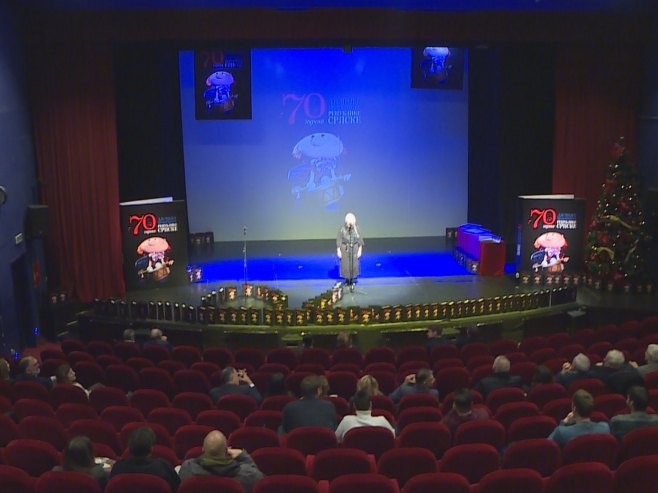Siniša Karan, Minister in the Government of Republika Srpska and constitutional law expert, said on the show Telering that the Dayton Peace Agreement still does not have a uniform interpretation in Republika Srpska and the Federation of BiH, even three decades after it was signed.
He noted that this is evident to every ordinary citizen living in Bosnia and Herzegovina and added that he recently discussed the Dayton Agreement with law students.
He emphasized that students in Republika Srpska and those in the Federation of BiH are taught completely opposing concepts.
“From a constitutional-legal perspective, we have diametrically opposite views, and this is being transferred into our academic community and younger generations. This is not good, because for 30 years the legal and scientific communities have held conflicting positions,” said Karan, Minister for Scientific and Technological Development and Higher Education.
He stressed that these diametrically opposed positions existed 15 years ago as well, with the same conclusions and the same problems present then as today.
“We often said that BiH was in a formative phase, or in the phase of implementing Dayton, and I emphasize that we are primarily referring to Annex 4, which defined the structure of the state. Today, we have a fully crystallized anti-Dayton BiH and the Dayton BiH agreed upon by the three peoples as the form and framework of their shared life within two entities,” Karan stated.
He added that both concepts exist in turbulent times and that society remains politically unstable. However, he noted that a major advantage is that the political crisis has not turned into a security crisis.
“A major strength of Republika Srpska is that we did not allow the constitutional crisis to become a security crisis, and I believe it is better to deal with political disputes for another 30 years than to face a security crisis,” Karan said.
He said that Annex 4 of the Dayton Peace Agreement contains numerous shortcomings.
“From a formal standpoint, Annex 4 contains many deficiencies for our understanding of legal norms because it was written by someone versed in Anglo-Saxon law. Its authors come from a system with the oldest constitution, and the document reflects that legal tradition. From our perspective, it is full of formal gaps and constitutional voids, and one of the biggest problems is that it did not explicitly define the form of state organization,” Karan explained.
He emphasized that BiH is undoubtedly a complex state, but the preamble of the Constitution clearly states that the three peoples make decisions.
“Those who hold sovereignty must be recognized in state decision-making and must be part of state authority. When you read the Constitution, you see that the sovereigns—the three peoples—are represented in all state institutions. An example is the Presidency of BiH, which has three members: a Serb, a Bosniak, and a Croat. That is where the problem arises. BiH is a federation, but an asymmetric one,” he said.
Asked why there is no consensus in BiH, Karan said that the majority Bosniak population is not giving up on its political concept of BiH.
“I believe the majority Bosniak people today are not giving up on the concept that BiH belongs to them. They have not accepted the equality of the other two peoples, and that is not good. The political concept of the Bosniak elite implies that the other two peoples should have the status of national minorities, not state-forming peoples, which is why the process of unitarization is not a process of compromise. The Constitution does not allow such a thing,” Karan stated.
He said that attacks on the Dayton Peace Agreement have persisted for 30 years in all its elements.
“In 30 years, an anti-Dayton structure has been created, not only in form but in substance,” Karan stressed.
He added that the concept of the Dayton Peace Agreement served its purpose and preserved peace.
“The concept does not change — it served its purpose and brought peace — but we have destroyed the state. Peace is only the product of an agreement among the three peoples, and that is being ignored. The tragic conflicts began when two peoples outvoted the third. Outvoting is the key to the conflict. Under the Yugoslav Constitution, all peoples had the right to self-determination. In BiH, where three peoples remained, one believed the state belonged exclusively to them — that is the problem,” Karan said.
He also presented data on the decisions imposed by the High Representatives, noting that 913 such decisions were imposed over the past 30 years.
“If we applied everything imposed over these 30 years, we would see that 913 decisions of the High Representative were to the detriment of Republika Srpska. That is 30 decisions per year, and all of them interfered with constitutional competencies and every sphere of life. Republika Srpska once had its own army and judiciary — today it has neither,” Karan stated.
Asked why the Dayton Agreement is being dismantled, Karan said it is because Republika Srpska is not being accepted.
“Please, read and apply what is written in the Constitution, and this country has a chance. Ignoring the Constitution is a straitjacket. If you were to apply any of these anti-Dayton measures now, we would once again find ourselves in tragic social circumstances and conflict, with one people being outvoted. I believe it is better for all of us to endure political pressures for another thirty years than to enter a conflict. BiH has a chance to function like other multiethnic federations in the world. The Constitution is sacred; it is a bible — it is not changed, it is respected. The Constitution is also a political act, because it contains the will of the people on how they choose to live. That is why the Constitution is the highest law, yet we behave as if it does not exist,” Karan concluded.
Source: RTRS









